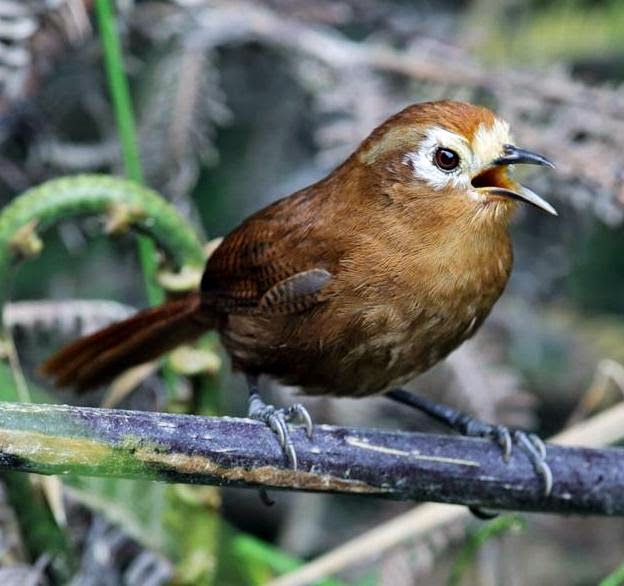 |
| Photo by Nick Athanas (Internet Bird Collection) |
Common name:
Peruvian wren (en); carriça-do-Perú (pt); troglodyte brun (fr); cucarachero peruano (es); sepiazaunkönig (de)
Taxonomy:
Order Passeriformes
Family Troglodytidae
Range:
This species is endemic to Peru, being found in the eastern Andes from Amazonas to Ayacucho.
Size:
These birds are 15,5-16 cm long and weigh about 20 g.
Habitat:
The Peruvian wren is found in mountain rainforests, including forests edges and nearby second growths, at altitudes of 1.500-3.400 m.
Diet:
They forage on or near the ground, possibly taking small invertebrates.
Breeding:
Peruvian wrens possibly breed in June-February. The nest is purse-shaped and made of small roots interwoven with green moss. It is placed hanging from a bamboo. There the female lays 2 creamy-white eggs with reddish-brown spots. There is no information regarding the incubation and fledging periods.
Conservation:
IUCN status – LC (Least Concern)
This species has a relatively large breeding range and is described as common. However, the population is suspected to be in decline owing to ongoing habitat destruction and fragmentation.







